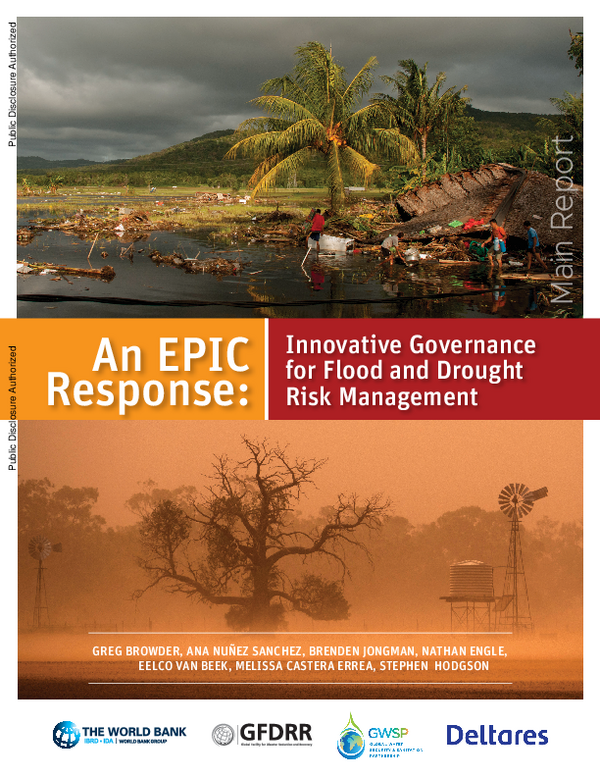- Share this article
- Subscribe to our newsletter
An EPIC Response: Innovative Governance for Flood and Drought Risk Management
Hydro-climatic hazards do not need to become disasters. Whether a hydro-climatic hazard results in a flood or drought disaster depends on how society manages these risks, according to the report An EPIC Response: Innovative Governance for Flood and Drought Risk Management published by the World Bank in June 2021.
Hydro-climatology looks at the interaction between weather, watersheds and water. Hydro-climatic extremes, such as periods of abnormal dryness or wetness, are natural hazards and are increasing in a warming world.
Over the last few decades, many countries have made significant improvements in managing hydro-climatic risks, supported by international initiatives such as the Sendai Framework for Disaster Risk Reduction, the Paris Climate Agreement, and the Sustainable Development Goals. But those are not enough, the report states. National governments often deal with floods and droughts in a siloed manner, without fully encompassing the complexity and interlinkages between these two types of hazards.
A new perspective, referred to as an "EPIC Response," is offered to better manage hydro-climatic risks: This perspective looks at floods and droughts not as independent events but rather as different ends of the same hydro-climatic spectrum that are inextricably linked. It provides a comprehensive framework to help national governments lead a whole-of-society effort to manage these risks.
An EPIC Response Framework shows how national governments can holistically manage floods and droughts: There are twelve fundamental building blocks to an EPIC Response, as explained in the report. The report also describes another 40 distinct programmes managed by a variety of national agencies. These different programmes interact in complex ways, but generally in a downward cascading manner that ultimately determines to what extent hydro-climatic hazards result in disasters.
(World Bank/ile)
Read more and download the report An EPIC Response: Innovative Governance for Flood and Drought Risk Management at the World Bank website





Add a comment
Be the First to Comment